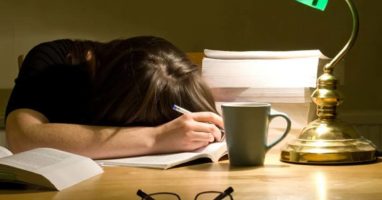Caffeine and Sleep Quality. Why You Need a Caffeine Curfew.
June 16, 2022

The reality is that people really like coffee. And this is ok. This isn’t a bash on coffee. Coffee has many great benefits for our physical health and also through social connections. This article isn’t on this.
The other reality is that caffeine is a powerful nervous system stimulant. This is what I want to chat about today and why we need a caffeine curfew in place for optimal health.
The point of these words is to learn about and establish a caffeine routine to ensure we are getting the best sleep possible.
Research has uncovered some critical insights into the effect of caffeine and sleep. One study published by the Journal of Clinical Sleep Medicine discovered caffeine immediately before bed, 3 hours before bed, or 6 hours before bed all resulted in significant measurable disruptions to sleep.
What is really interesting about this study is that the majority of subjects didn’t note any subjective differences in their sleep. They felt like they were sleeping ok. They physiologically lost sleep because of the caffeine, but they didn’t consciously know it. To their knowledge, they felt like they were fast asleep and sleeping well. The truth though. The data collected highlighted they weren’t actually dipping into normal ranges of Deep and REM sleep. This is even true in the 6 hours before bed consumption. The sleep monitors measured an objective loss of one hour of sleep.
The interesting thing that we can all learn about this study is that even though we don’t think that an afternoon coffee (or other caffeinated product) is impacting our sleep it certainly is. In fact, it is helping to create a vicious cycle. Due to sleep quality (not time asleep) being poor the result will be sleep deprivation. Not getting sufficient deep sleep or REM sleep inevitably more tired. And when we are more tired what do we reach for? Yep, you guessed it, the powerful central nervous stimulant caffeine. Being tired makes us want more. And in turn, extra cups of coffee will make our sleep problems worse.
We need a strategy in place to counteract this. A strategy that allows us to get the benefits of drinking coffee without the negative effects it can have on sleep. And the easiest strategy is setting a coffee (and caffeine) curfew. Try aiming to have no caffeine after 2:00 pm. If you are a regular evening coffee consumer, try setting a curfew for a few weeks or so, I am sure you will experience a difference in your energy levels. Oh and if you think caffeine doesn’t impact your sleep you are probably wrong. It is likely you wake up feeling tired, if you are well-rested but still tired in the morning coffee is one of the probable causes.
Set an afternoon coffee curfew and reap the rewards. Treat your coffee like a sunrise, it is something to be enjoyed and appreciated in the morning.
Share This Story, Choose Your Platform!
Caffeine and Sleep Quality. Why You Need a Caffeine Curfew.
June 16, 2022

The reality is that people really like coffee. And this is ok. This isn’t a bash on coffee. Coffee has many great benefits for our physical health and also through social connections. This article isn’t on this.
The other reality is that caffeine is a powerful nervous system stimulant. This is what I want to chat about today and why we need a caffeine curfew in place for optimal health.
The point of these words is to learn about and establish a caffeine routine to ensure we are getting the best sleep possible.
Research has uncovered some critical insights into the effect of caffeine and sleep. One study published by the Journal of Clinical Sleep Medicine discovered caffeine immediately before bed, 3 hours before bed, or 6 hours before bed all resulted in significant measurable disruptions to sleep.
What is really interesting about this study is that the majority of subjects didn’t note any subjective differences in their sleep. They felt like they were sleeping ok. They physiologically lost sleep because of the caffeine, but they didn’t consciously know it. To their knowledge, they felt like they were fast asleep and sleeping well. The truth though. The data collected highlighted they weren’t actually dipping into normal ranges of Deep and REM sleep. This is even true in the 6 hours before bed consumption. The sleep monitors measured an objective loss of one hour of sleep.
The interesting thing that we can all learn about this study is that even though we don’t think that an afternoon coffee (or other caffeinated product) is impacting our sleep it certainly is. In fact, it is helping to create a vicious cycle. Due to sleep quality (not time asleep) being poor the result will be sleep deprivation. Not getting sufficient deep sleep or REM sleep inevitably more tired. And when we are more tired what do we reach for? Yep, you guessed it, the powerful central nervous stimulant caffeine. Being tired makes us want more. And in turn, extra cups of coffee will make our sleep problems worse.
We need a strategy in place to counteract this. A strategy that allows us to get the benefits of drinking coffee without the negative effects it can have on sleep. And the easiest strategy is setting a coffee (and caffeine) curfew. Try aiming to have no caffeine after 2:00 pm. If you are a regular evening coffee consumer, try setting a curfew for a few weeks or so, I am sure you will experience a difference in your energy levels. Oh and if you think caffeine doesn’t impact your sleep you are probably wrong. It is likely you wake up feeling tired, if you are well-rested but still tired in the morning coffee is one of the probable causes.


